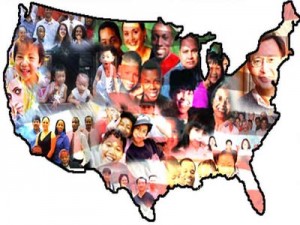© Paul Lachelier 2011. All rights reserved.
It’s no secret that most Americans loathe politics. The more interesting questions are why do Americans loathe politics, and why should we perhaps more than any other people on earth, on the contrary, embrace politics? The answer to both these questions lies in Americans’ political attachment and detachment.
In trying to understand why most Americans loathe politics, the mistake many observers make is to focus on politics rather than Americans. Common answers finger the lies, egos, corruption, obsequiousness, partisanship, money, and other more or less unsavory features of politics. But these features of politics don’t explain why some people are much more engaged with politics than others regardless of the latest political fiascos.
 Research shows that those most politically engaged – that is, those who participate in, care, know and talk about politics the most – tend to have more education, income, and people around them who are likewise politically engaged. What education, income, and political associates all have in common is that they tend to attach individuals to politics. The more education one has, the more likely one is to learn about politics. The more income one has, the more government takes in taxes. The more politically engaged one’s friends and family, the more likely one is to hear about and be urged to participate in politics.
Research shows that those most politically engaged – that is, those who participate in, care, know and talk about politics the most – tend to have more education, income, and people around them who are likewise politically engaged. What education, income, and political associates all have in common is that they tend to attach individuals to politics. The more education one has, the more likely one is to learn about politics. The more income one has, the more government takes in taxes. The more politically engaged one’s friends and family, the more likely one is to hear about and be urged to participate in politics.
Thus, whether one loathes or loves politics may have less to do with what goes on in politics and more to do with one’s social situation. In life, birds of a feather flock together. Opposites do not attract. Hence, people with more education, income and political friends and family tend to flock together, just as people with less of these cluster together. Most of us accordingly live in politically connected or disconnected ghettos. (Sadly, political campaigns often reinforce political ghettoization by ignoring those who don’t vote since those without a voting record are least likely to vote.) So when politics comes knocking in the most conspicuous forms of a politician’s TV ad, or perhaps a high school civics lesson, how one responds depends as much if not more on our social context than the substance of the ad or lesson.
Why should anyone care if a person’s social situation goes farther than the ills of politics in explaining people’s taste for politics? Because politics matters to everyone more and more, and because that education-income-network nexus makes politicians sing with a distinctly upper-class accent, to paraphrase political scientist E.E. Schattschneider.
While most Americans feel detached from politics, our lives are inescapably attached to politics in more ways than most of us realize. As I tell my students, Americans cannot work, eat, sleep, walk, drive, or even breathe without politics affecting them. Our local, state and/or federal governments shape wages and working conditions, food, home, auto and neighborhood safety, street and highway conditions, and air pollution, among many other everyday life conditions.
Of course, conservatives see this as evidence that governments are too powerful, but try leaving these life conditions entirely to business interests and see how long it takes for people to demand government oversight to protect the public interest. Further, try living in a country where little such government regulation exists, and see how long it takes many Americans to book their return flight.
For better or worse, Americans still have more impact on the world than any other people on earth as workers, consumers and taxpayers. Yet most Americans have little precise sense of just how much their lives are intertwined with those of countless strangers across the world through their work and leisure connected with multinational companies like Walmart, McDonalds, Disney and Exxon, and through the U.S. government’s far-reaching military, diplomatic and humanitarian engagements.
Whether or not Americans’ detachment from politics makes it harder for us to see our political attachments to the world, politics is inescapable in the modern world, as 9/11 should have made painfully clear. Moreover, if we want our politicians to sing with an encompassing American accent rather than an upper-class accent, it is high time to think hard about how we can make politics an engaging part of every Americans’ life, regardless of one’s income, education or social networks.
Democracy demands we all embrace the art of government. Democracy demands politics.
Excellent points and I would add, NOT being in one way or another involved and knowledgeable in politics is dangerous to your health, i.e. Obamacare vs Universal Health Care vs. Corporate run Health Care…..which would you want???